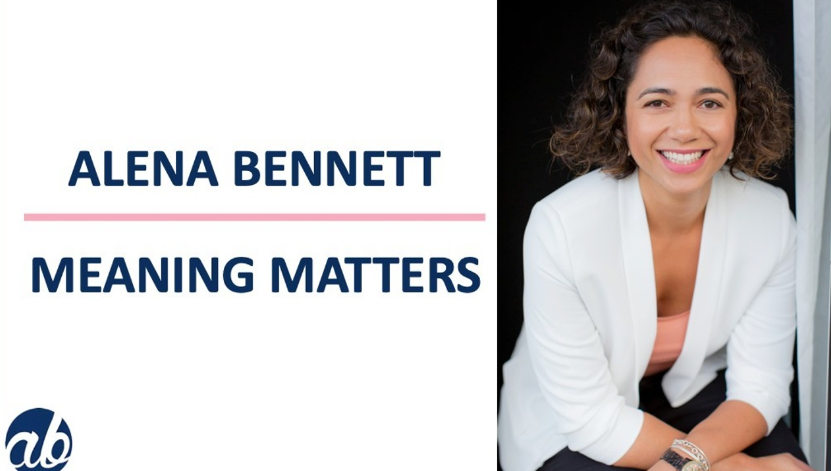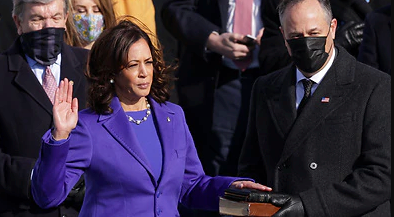With the historic moment of Kamala Harris being appointed as the first ever female and woman of colour Vice President, yesterday was a big day. There were many highlights during the day, but the vision of Vice President Harris standing tall had one very important meaning: possibility.
Possibility will be a big theme for 2021. 2020 was a massive year and it beat us up. It stretched us, saddened us, delighted us and humbled us and having been pulled and stretched in ways you didn't think possible, we now have the opportunity to approach 2021 and wear those experiences with a mindset of possibility.
When we see possibility, we see opportunity. When we see opportunity we can seize opportunity.
So as we welcome 2021, I'd like to start the year by sharing 3 lessons that we learned as leaders in finance last year, that we can bring into 2021 and help you seize the opportunities that await you.
Proof of possibility
Creativity
What got you here won't get you there - Marshall Goldsmith
The first lesson is having a mindset of creativity. For the first time, last year, we were forced to work from home. It's fair to say that so many of us have never done that before, or we work with people and organisations who genuinely don't want us to be working from home. As a result, we had to be really innovative and use that right side of our brain to help us problem solve. Working in this imperfect scenario, how were we going to get our job done? Whether it was talking to suppliers, talking to banks, who were also often working remotely away from their desks away from their environment and their files, how did you have to think and act in a more creative way than the default you were used to? 2020 was highly emotionally charged - with our health and safety under real threat - which meant we needed to constantly think about the emotional side of our jobs: how were our people feeling, how were their family going? What did that do to our employees' emotional states? We learned very quickly that, despite it being a great option, we lost some of our ability to 'read the room' when we were in a virtual environment. So we had to demonstrate exceptional communication agility because we needed to communicate in innovative ways and have rapid flexibility around that. We also needed to demonstrate creativity in our problem solving - how were we going to meet the target to keep our companies alive, without massive collateral damage? We saw so many examples of that, restaurants providing take-away options, shop fronts offering online services. Quite often, who sat behind that? A finance professional like you. We had to get creative.
Simplicity
If everything is important, nothing is - Patrick Lencioni
Given the huge amount of uncertainty and change that occurred last year, we very quickly started craving simplicity. Our cognitive load was full. We couldn't handle anything else so we had to prioritise like we've never done before. Meetings were cancelled, projects were put on pause, even budgets processes were canned. A new tension emerged: one of performance and purpose. There were those of us who still had jobs, those of us who were the stewards of other people's jobs and as a result, performance was critical: turning up and nailing a job; being there for our staff at work was absolutely critical. And quite frankly, given everything else in the world, we were absolutely grateful to still have jobs and provide for our families in a time where we were just seeing thousands of people losing jobs and losing everything.
But at the same time, we couldn't help but ask ourselves: "What's it all for? Is this worth it? Am I doing the right thing for me and the people that are most important for me?"
The purpose conversation is usually one not had for leaders in finance at the best of times, but I think last year forced our hand a bit. We couldn't hide from it any longer.
For the first time we had a spectrum of intention between performance and purpose, and we were forced to step back and ask ourselves, "what's most important now?"
But there was so much noise. We weren't doing annual or half year planning anymore. We were literally doing 24 hour planning. Thinking, 'are we going to be able to pay the bills next week, pay our suppliers, pay our employees?' As new legislation and guidance came in every week, we had to think, 'what does this mean? Who is eligible? What is the impact? For how long? With all of that noise happening we need to step back and determine what was actually critical. We needed an acute ability to prioritise and it will continue to be in 2021.
Empathy
The struggle of my life created empathy - Oprah Winfrey
The final theme that we learned last year and can take into 2021 is empathy. Empathy really came came up a lot with my clients. This year we obviously needed to make sure the staff and the people around us were okay which required us to do a lot of active listening. Because we were working in a remote environment where people were so crunched for time, we really needed to focus on the other end, the paper person on the other end of the email, and on the other end of the Teams video call. We had to be 'we-centric' as opposed to 'I-centric'. And why was that? Because empathy is about value.
How do you truly know what is valuable to another person - i.e. what they need - if you're not empathetic? Last year we didn't have time for 'soft, slow, fluffy stuff'. We needed to deliver quicker than ever, and at the same time, demonstrate deep empathy to the other person's situation. But as I've described above, the context was full of noise. The ability to be empathetic invited you into a conversation, but also allowed you to cut through the noise and articulate what was essential.
Creativity, simplicity, empathy. Together they will bring you a possibility mindset which means you'll be more equipped to seize the opportunities that 2021 presents you.
Here are 3 questions I'd like to leave you with to consider where you're at with each of those themes:
• What was the best new thing that you did or that you learned that you can bring into 2021?
• On a scale of 1-10, how well are you focussing your energy and effort on what's important and what do you need to take into 2021?
• How often do you ask yourself the question, 'What is the value of this work/task/project/conversation?' What would you need to do differently if you focused on value first?
Welcome to 2021. It's going to be a great year for CFOs. I can't wait to share it with you.


